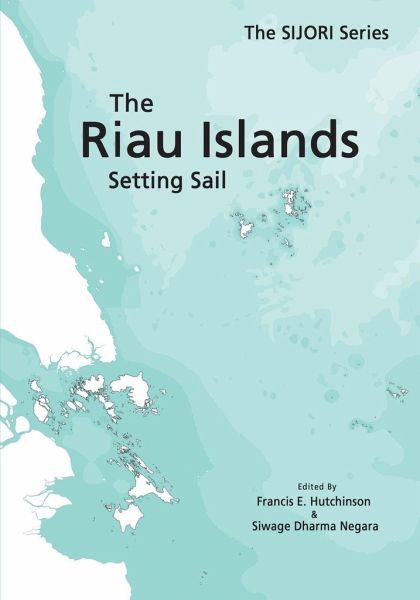
The Riau Islands
Setting Sail
Herausgeber: Hutchinson, Francis; Negara, Siwage
Versandkostenfrei!
Versandfertig in 1-2 Wochen
31,99 €
inkl. MwSt.

PAYBACK Punkte
16 °P sammeln!
To Singapore's immediate south, Indonesia's Riau Islands has a population of 2 million and a land area of 8,200 sq kilometres scattered across some 2,000 islands. The better-known islands include: Batam, the province's economic motor; Bintan, the area's cultural heartland and site of the provincial capital, Tanjungpinang; and Karimun, a ship-building hub strategically located near the Straits of Malacca. Leveraging on its proximity to Singapore, the Riau Islands-and particularly Batam-have been a key part of Indonesia's strategy to develop its manufacturing sector since the 1990s. In addition ...
To Singapore's immediate south, Indonesia's Riau Islands has a population of 2 million and a land area of 8,200 sq kilometres scattered across some 2,000 islands. The better-known islands include: Batam, the province's economic motor; Bintan, the area's cultural heartland and site of the provincial capital, Tanjungpinang; and Karimun, a ship-building hub strategically located near the Straits of Malacca. Leveraging on its proximity to Singapore, the Riau Islands-and particularly Batam-have been a key part of Indonesia's strategy to develop its manufacturing sector since the 1990s. In addition to generating a large number of formal sector jobs and earning foreign exchange, this reorientation opened the way for a number of far-reaching political and social developments. Key among them has been: large-scale migration from other parts of the country; the secession of the Riau Islands from the larger Riau Province; and the creation of a new provincial government. Building on earlier work by the ISEAS - Yusof Ishak Institute on the SIJORI Cross-Border Region, spanning Singapore, the Malaysian state of Johor, and the Riau Islands, and a second volume looking specifically at Johor, the third volume in this series explores the key challenges facing this fledgling Indonesian province. Adopting a multidisciplinary framework, this book explores three issues: what have been the social, political, and environmental effects of the rapid economic change set in motion in the Riau Islands; to what extent can or should the province seek to reconfigure its manufacturing-based economy; and how have the decentralization reforms implemented across Indonesia affected the Riau Islands. "The Riau Islands: Setting Sail, edited by Francis. E. Hutchinson and Siwage Dharma Negara completes the SIJORI series, following the publications of earlier studies on the Singapore Cross-Border Region and Johor. The book comprises a rich collection of essays covering: the economic development challenges faced by Batam and the other islands; the political setting which highlights centre-periphery dynamics and issues related to the governance of the new province; as well as the social-cultural impacts of economic development which has attracted migration from other parts of Indonesia. This book provides valuable contributions to the study on Cross-Border Regions, enhances our understanding about the dynamics of the SIJORI Growth Triangle, and last but not least fills a gap in knowledge about the Riau Islands which, as the book says, is regarded as marginal from the perspective of Jakarta, but is central in its relation to Singapore as the subregional metropolis." -- Dewi Fortuna Anwar, Research Professor at the Research Center for Politics, Indonesian Institute of Sciences; Vice-Chairman of the Board of Directors, The Habibie Center, Jakarta


